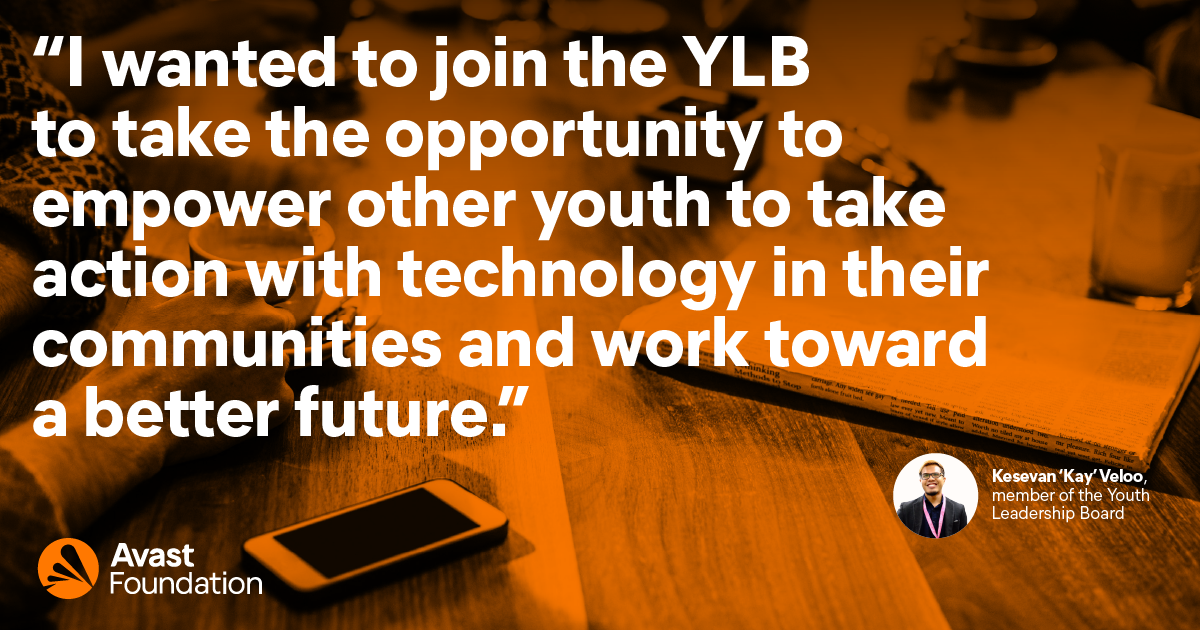What does it mean to be a member of the YLB?

Each member of the YLB focuses on a different mission. Why is climate change and sustainability so important to you?
Sustainability and climate change are closely connected to agriculture as evidenced through the lens of the UN Sustainable Development Goals (SDGs). Having worked directly in the agriculture sector, I have seen how climate change (SDG 13: Climate Action) can trigger a ripple effect of unfortunate events. Crops cannot adapt to extreme weather fluctuations, which leads to low yield production and low income for the farmers (SDG 1: No Poverty). The farmers are then unable to support their children financially for their education (SDG 4: Quality Education). The situation also gives rise to food shortages to support our growing population (SDG 2: Zero Hunger), which, in turn, impacts our wellbeing (SDG 3: Good Health and Well-Being). Although each member of the AYLB brings a different mission, everything we do is interlinked.
We no longer have the privilege to sit around and wait for climate scientists and environmentalists to tell us what to do next. We need to create a butterfly effect by making sustainable decisions and subtle changes in our daily lives. These will help us overcome our current climate-related issues, allowing us to thrive in the long run.
As a global goal, do you think organizations — especially tech companies — are engaged enough in climate change?
Solely on what I have seen so far, yes, but not nearly enough. We are making significant technological advancements to assist farmers in taking better management decisions. Unlike farmers in developed countries, who can afford technologies like drones and large unmanned tractors and are familiar with their adoption, I feel that farmers in developing countries are at a severe disadvantage due to unfamiliarity with newer technology and financial restraints. Basically, we’re making all kinds of new technologies — most of which are pretty expensive — without even considering if farmers can afford or even know how to use them. So the technology might exist, but whether or not it can be applied in an impactful way is another question.
Also, it is a good step that we’re supporting today’s farmers, who, on average, are 60-70 years old. However, we should find ways to attract the involvement of younger people in agriculture as they still perceive the industry as "outdated, dirty and laborious". Who else, other than today’s youth, can take over the agricultural sector in the future?
What is the focus of your research?
My main focus is to develop low-cost technologies that are easy to implement by farmers engaging in commercial and subsistence farming. I also strive to make agriculture fun for young people by incorporating current trends like virtual reality and social media applications to educate them about sustainable crop cultivation from their homes.
How do you hope digital technology will make a difference?
We live in a data-driven world where all the information we need is at our fingertips. As farmers, we can find ways to maximize our crop yields using optimal resources.
However, the term "we" here does not exactly apply to everyone. There are still farmers in many areas, even young ones, who are unable to retrieve such information due to limitations such as skills and knowledge shortage, and access to opportunity. I really hope we can close the gaps for these farmers and get them educated about sustainable agricultural practices using digital technology.
What drives you?
People, particularly those involved in agriculture directly and indirectly. Coming from an agricultural background, I am fortunate enough to have the opportunity to study abroad and gain knowledge on how to use technology to improve my life. I want to share what I’ve learned and experienced, and give opportunities to those who didn’t get the same chance as I did.
What are the challenges?
There are many challenges, unfortunately. Many farms operate on single-digit profit margins, while the average is just over 11%. Implementing a new farming system with new technologies means convincing people who have farmed the same way for generations to spend money on technology that is unproven at scale. This means that any new technology must be thoroughly justified and usually takes years to pay off. Cost is a huge hurdle and will remain a hurdle unless food prices increase by a triple — or more— or unless the cost of tech equipment is dramatically reduced. Climate change is also another huge problem as extreme weather fluctuations make it hard to construct model predictions to inform farmers in their decisions.
How are you hoping to maximize opportunities to create the results you want?
The typical answer is, through research. But I would say, in addition to that, outreach efforts would come in handy. On the tech side, we’re good at developing and inventing new things, but it doesn’t necessarily mean we’re creating what farmers genuinely want. Engaging in outreach, going directly to the people and asking what they want, understanding their problems, and having workshops to train them once the solutions are developed, would be hugely beneficial and make our work even more meaningful.
What future would you like for the farmers in your country and what route map would you like them to engage with?
I want farmers both in my country and in general to be tech-savvy and have the opportunities to have hands-on training with that tech. If they find it hard to learn about technology, then we should customize it to their preference. This could be achieved through more workshops or field trips allowing them to acquire the knowledge and skills to start using technology.
As a member of the YLB how can the board engage youth citizenship to create social impact?
We’re all fortunate enough to have grown up using technology and we’re familiar with it But, there are people from parts of the world who are not. And they are the ones that need the tech the most. We should avoid assuming things, miss out the middlemen, go directly to those people and ask what they need the most. We should create platforms for their voices to be heard.
What does digital freedom mean to you?
The freedom and equal opportunity to access and retrieve information to learn new things, improve your life, and inspire others to do the same.
Digital safety and freedom are crucial for young people to be able to express themselves without feeling boxed in. Technology brings myriad possibilities for young people to change the world, in good and bad ways. Our responsibility, as YLB members, is to make them feel safe and guide them in the right direction.
